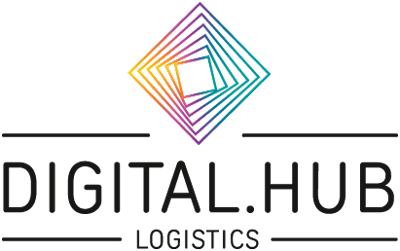
SME meets start-up: “The blockchain needs more use cases”
The topic of Blockchain is rapidly gaining momentum these days – and was therefore now on the agenda of “Mittelstand meets Start-up”. No fewer than four block chain start-ups presented their business models and technological approaches in short pitches at the digital event, which took place as part of #diwodo20 – the Digital Week Dortmund – and offered participants from the industry plenty of starting points for discussion.
The Blockchain is currently on everyone’s lips and yet for many companies it is a book with seven seals. The event “Mittelstand meets Start-ups”, to which the Digital Hub Logistics together with Digital in NRW – Kompetenz für den Mittelstand and the new project Blockchain Europe NRW had invited, showed once again that use cases are rare. But that’s exactly what is needed to enable SMEs to recognize and, above all, utilize the potential of Blockchain. The blockchain technology in particular can overcome regulatory restrictions in cross-company collaboration. It also became clear that block chain technology does not have to be understood down to the last detail in order to use it: The reference to the Internet provided an aha experience for many participants.
Carina Culotta from the Fraunhofer Institute for Material Flow and Logistics IML had already referred the participants to support services and participation opportunities for interested companies – be it through Digital in NRW – Kompetenz für den Mittelstand or Blockchain Europe, the new research project to establish the European Blockchain Institute in NRW.
The pitches of the four start-ups showed just how concrete blockchain technology already is: Mirko Mollik from Gelsenkirchen-based Trust Certs demonstrated the added value of digital signatures – and used information on data security to promote greater trust in the product. His mission: to make the world more trustworthy, combat fraud and secure processes. The Blockchain makes an important contribution to this.
Daniel Trauth from Senseering, based in Cologne, presented his platform, which helps companies get more out of their data. The company digitizes complex and difficult-to-connect (industrial) hardware, among other things with the aim of real-time condition monitoring of industrial plants and intelligent devices. Using block chain technology, this platform establishes the necessary trust between machines.
The other two start-ups from the TechQuartier area reported on the exciting field of tokenization, such as the Digital Hub Logistics part of the Germany-wide de-hub initiative. Amazing Blocks‘ software, presented by Nicolas Weber, enables companies to automate the start-up process for legal entities. This means that every asset and every right can be efficiently converted into tokens – whether cars, machines or real estate. Shares, shareholders and their decisions can thus be managed completely remotely. Transfer of ownership of share tokens can then be completed within minutes. The Frankfurt start-up iVE.ONE, in turn, combines the three pillars of digital securities: issuing, investment and regulation. According to Evgeny Matershev of iVE.ONE, this solution enables companies that were previously only active in private markets to now operate in the capital markets through tokenization and expand their investors’ portfolios within a regulated framework without technical experience.
LedgerEngineers shows success factors
But how do medium-sized companies and start-ups find each other? This was shown in a field report by Natalia Broza-Abut from LedgerEngineers. The start-up, a member of the Digital Hub Logistics, offers LogCoin, a block chain platform for the provision of crowdsourced transport services (BPCTSP) for B2B, B2C and C2C. The founders repeatedly carry out cooperation projects with medium-sized companies. “The first thing we always check first is whether the use of blockchain makes sense at all or whether, for example, a database can meet the requirements at considerably lower cost,” said Natalia Broza-Abut, explaining the general approach – and thus also a key success factor for the cooperation between start-ups and SMEs: “You have to approach the problems openly and honestly – only then will you find the right solution that satisfies everyone.”
Photo: Hitesh Choudhary, unsplash.com





